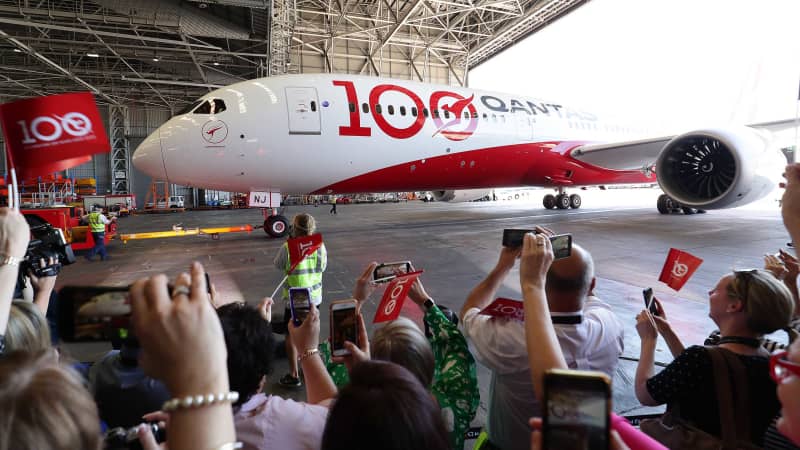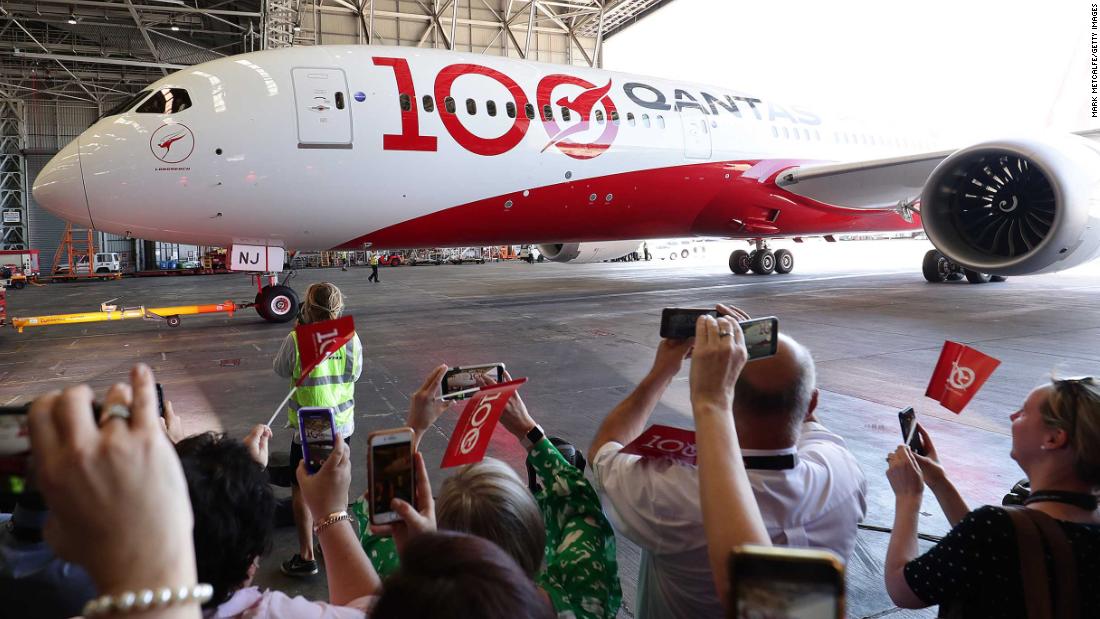That doesn’t mean it’s given up on Project Sunrise — a Qantas plan to operate the world’s longest nonstop flights, which would allow travelers to fly between London or New York to the eastern Australia cities of Sydney and Melbourne.
In an interview with CNN’s Richard Quest, Qantas CEO Alan Joyce says the airline plans to revisit the development of these ultra long-haul routes in 2022, with an aim to launch in the following two to three years.
“We still have Project Sunrise in the pipeline, which is our ability to fly from Sydney and Melbourne to the last horizon, the last tyranny of distance, direct into London, direct into the east coast of the United States,” said Joyce.
“That will be a unique value proposition that no other airline in the world will be offering.”
At the moment, Joyce says Qantas is focused on plans to replace its domestic fleet.
“Once we finish that, which we’ll do early in 2022, we’ll revisit Sunrise and the likelihood is somewhere like 2024 or 2025 for the first aircraft arriving, given the delay.”
Joyce says the airline plans to order a series of modified Airbus A350-1000 jets — extra fuel tanks will bump up the range of the aircraft — to service the routes.
Joyce called the decision “a tough choice” that was “made even harder by innovation from both manufacturers to improve on what they had already spent years designing.”
Project Sunrise trial flights

Qantas flight QF7879, which lasted 19 hours and 19 minutes, landed in Sydney on November 15, 2019.
Mark Metcalfe/Getty Images
The name “Project Sunrise” was inspired by clandestine World War II flights that were made from Perth to Sri Lanka en route to London. They were fraught with danger, and lasted so long they saw two sunrises.
In 2019, Qantas conducted three trial research trips to gather data to present to Australia’s Civil Aviation Safety Authority, which will need to approve the routes based on proof that pilots, cabin crew and passengers can cope with up to 22 hours in the air without a break.
During these flights, pilots wore brainwave monitors and had their urine tested in the weeks before and after the flights to track levels of melatonin, a hormone that controls sleep cycles.
Passengers in the main cabin wore monitoring devices, allowing scientists to study how their “health, wellbeing and body clock” were impacted by a set of variables including lighting, food and drink, movement, sleep patterns and inflight entertainment.
CNN’s Richard Quest travels from Singapore to New York aboard Singapore Air, which once again holds bragging rights to flying the world’s longest flight.
It became the world’s longest passenger flight by a commercial airline both for distance, at 17,800 kilometers (about 11,060 miles), and for duration in the air, at 19 hours and 19 minutes. Living up to the project’s name, passengers did indeed experience two sunrises.
Flights from Singapore to JFK take 18 hours and 5 minutes, while JFK to Singapore takes 18 hours and 40 minutes, due to the headwind.
Includes reporting by CNN’s Richard Quest, Barry Neild, Angus Watson, Michelle Toh and Julia Buckley
